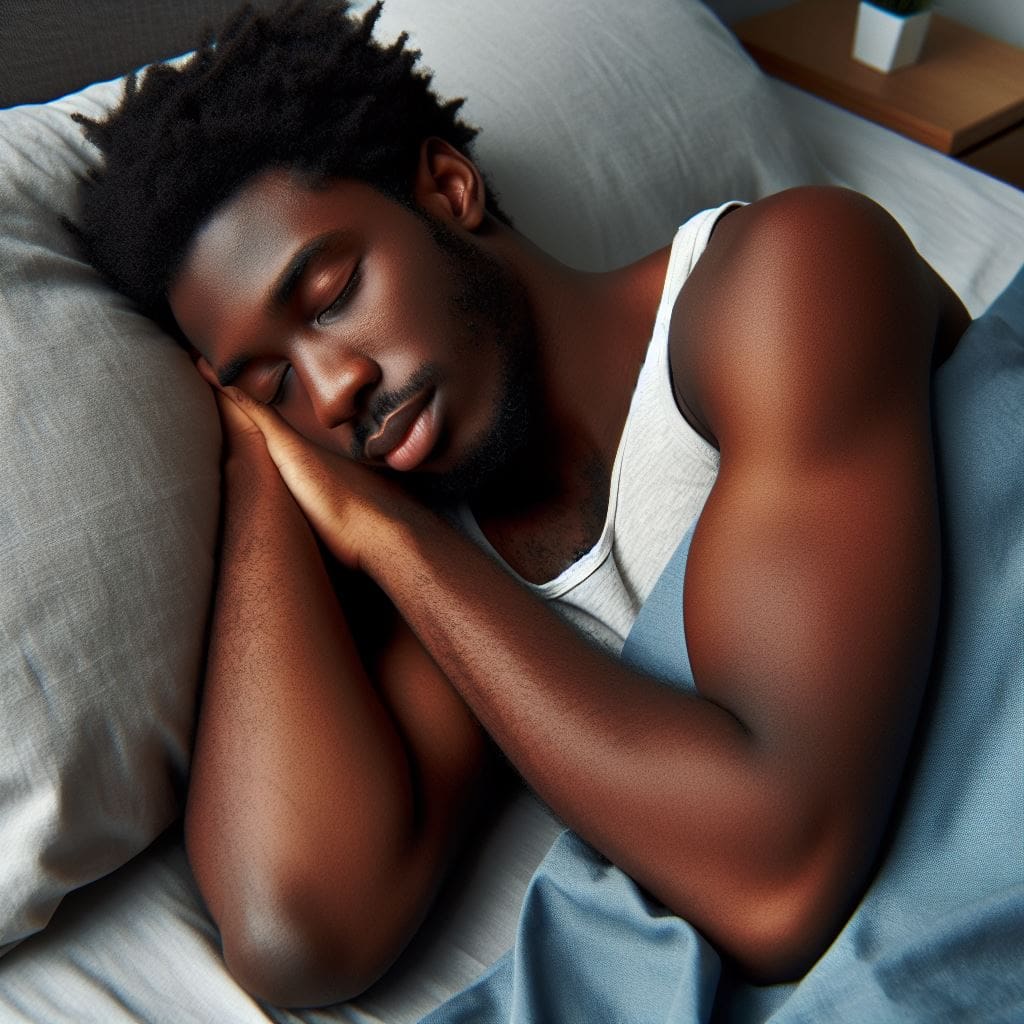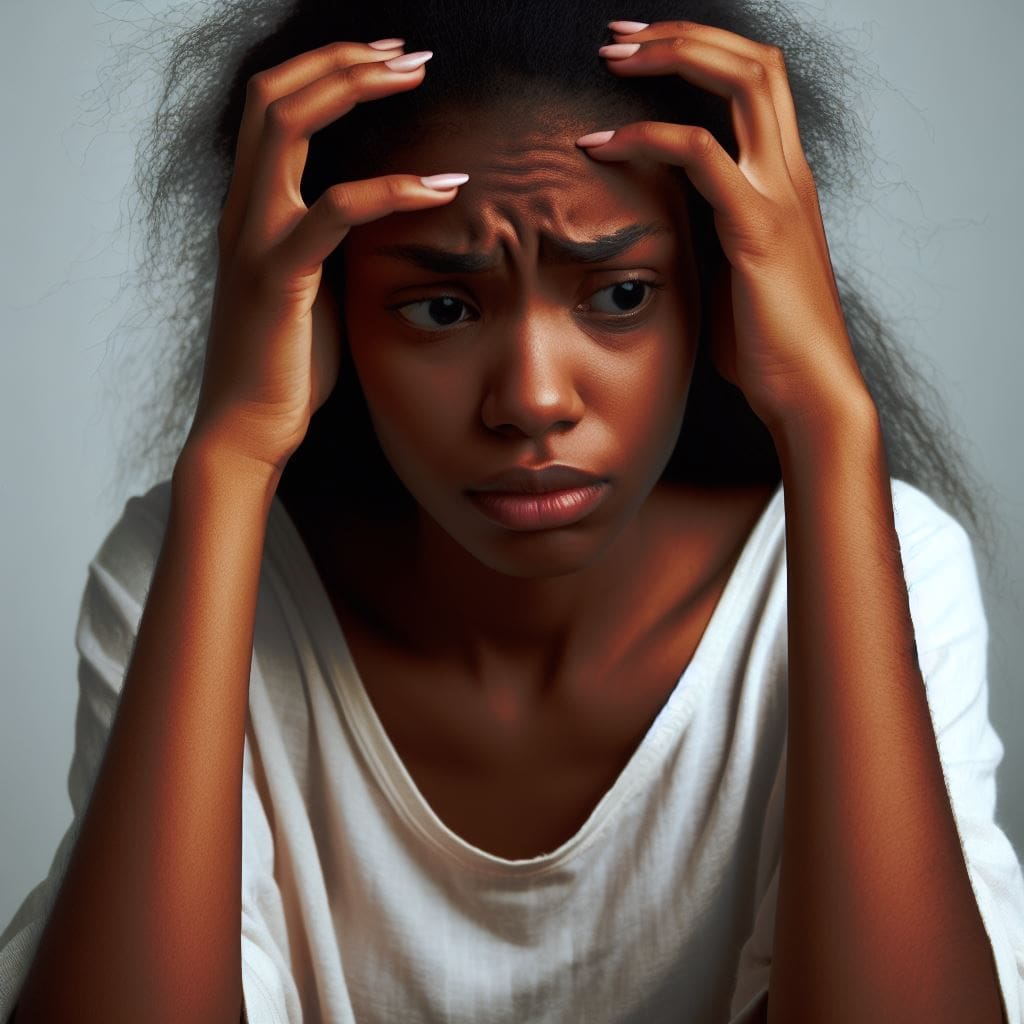
Sleep, often referred to as nature’s way of resetting the mind and body, is crucial to our overall health and well-being.
It is during sleep that our bodies repair tissues, consolidate memories, and produce hormones vital for our physical and mental health.
However, millions of people around the world struggle with sleep problems, also known as sleep disorders.
This article explores the world of sleep problems, including the different types, causes, symptoms, and potential treatments.
It also provides practical tips and strategies to improve sleep hygiene and achieve better sleep quality.
Understanding Sleep and Sleep Cycles
Before diving into sleep problems, it’s important to understand normal sleep patterns. Sleep is not a uniform state; it’s a complex process involving various stages.
These stages can be broadly categorized into two types: non-rapid eye movement (NREM) sleep and rapid eye movement (REM) sleep.
- NREM Sleep: NREM sleep makes up around 75% of total sleep and consists of four stages. Stage 1 is the lightest stage of sleep, characterized by the slowing down of brain waves and body functions. Stages 2, 3, and 4 are progressively deeper stages of sleep. During deep sleep (stages 3 and 4), brain activity slows down considerably, and muscles relax. This is the restorative stage of sleep, crucial for physical renewal.
- REM Sleep: REM sleep makes up about 25% of total sleep and is characterized by rapid eye movements, increased brain activity, and muscle paralysis (except for the eyes). This is the stage of sleep when dreaming typically occurs.
A typical sleep cycle progresses through these stages in a predictable order. We begin with NREM stage 1, then cycle down to stages 2, 3, and 4.
After spending some time in deep sleep, we return to lighter stages of NREM sleep and then enter REM sleep.
This cycle repeats itself throughout the night, with four to six cycles occurring in a healthy adult’s sleep.
The Importance of Sleep
Sleep is an essential part of our physical and mental health. During sleep, our bodies:
- Repair and rebuild tissues
- Strengthen the immune system
- Regulate hormones, including growth hormone, which helps build muscle and repair tissues, and leptin and ghrelin, which regulate appetite
- Consolidate memories by transferring short-term memories to long-term storage
- Improve cognitive function, including focus, concentration, and learning
Sleep deprivation, on the other hand, which is when we don’t get enough sleep, can cause a number of negative consequences, both physical and mental, including:
- Impaired daytime alertness and increased risk of accidents
- Difficulty concentrating and learning
- Irritability and mood swings
- Weakened immune system
- Increased risk of chronic health problems, such as heart disease, stroke, diabetes, and obesity
Sleep Problems: An Overview
What are Sleep Problems?
Sleep problems are any conditions that prevent you from getting the quality or quantity of sleep you need to function properly during the day.
Sleep problems can range from occasional difficulties falling asleep to chronic conditions like insomnia and sleep apnea.
Sleep problems can significantly impact a person’s health, well-being, and quality of life. They can also affect daytime productivity, relationships, and overall safety.
According to the American Academy of Sleep Medicine, adults need an average of 7 to 8 hours of sleep per night [1]. However, many adults regularly get less than that.
Types of Sleep Problems
There are numerous types of sleep problems. Here are some of the most common:
- Insomnia: Insomnia is the most common sleep disorder, characterized by difficulty falling asleep, staying asleep, or both. People with insomnia may wake up feeling unrefreshed, even after what seems like a full night’s sleep.
- Sleep Apnea: Sleep apnea is a serious sleep disorder characterized by brief pauses in breathing during sleep. These pauses can occur hundreds of times a night, disrupting sleep quality and causing daytime sleepiness. There are two main types of sleep apnea: obstructive sleep apnea and central sleep apnea.
- Restless Legs Syndrome (RLS): RLS is a neurological disorder characterized by an irresistible urge to move the legs, usually at night. This can make it difficult to fall asleep or stay asleep.
- Circadian Rhythm Sleep Disorders: Circadian rhythm sleep disorders are a group of conditions that disrupt the body’s natural sleep-wake cycle. This can make it difficult to fall asleep or wake up at desired times. Examples include jet lag, shift work sleep disorder, and delayed sleep phase syndrome (DSPS).
- Narcolepsy: Narcolepsy is a chronic neurological disorder characterized by excessive daytime sleepiness (EDS) and sudden attacks of sleep paralysis or cataplexy (sudden loss of muscle control triggered by emotions).
- Parasomnias: Parasomnias are a group of sleep disorders characterized by abnormal behaviors or experiences during sleep. Examples include sleepwalking, night terrors, and sleep talking.
- Hypersomnia: Hypersomnia is a sleep disorder characterized by excessive sleepiness or difficulty waking up in the morning.
- Sleep-Related Movement Disorders: Sleep-related movement disorders are a group of conditions that involve involuntary movements during sleep. Examples include restless legs syndrome and periodic limb movement disorder (PLMD).
Causes of Sleep Problems
There are many different factors that can cause sleep problems. Some of the most common causes include:
- Medical conditions: Certain medical conditions, such as pain, chronic illnesses (e.g., heart disease, asthma, depression), and neurological disorders (e.g., Parkinson’s disease, Alzheimer’s disease) can disrupt sleep.
- Medications: Some medications can interfere with sleep, causing insomnia or other sleep problems. Be sure to talk to your doctor about any medications you are taking that may be affecting your sleep.
- Mental health conditions: Mental health conditions, such as anxiety, depression, and post-traumatic stress disorder (PTSD), can significantly impact sleep.
- Anxiety Anxiety is a common cause of sleep problems. People with anxiety often worry excessively, which can interfere with sleep.
- Depression Depression can also cause sleep problems. People with depression may experience difficulty falling asleep, early morning awakening, or both.
- Substance use: Alcohol, caffeine, and nicotine can all disrupt sleep patterns.
- Lifestyle factors: Poor sleep hygiene, jet lag, shift work, irregular sleep schedules, and excessive screen time before bed can all contribute to sleep problems.
- Stress
Stress is a major cause of sleep problems. When you’re stressed, your body releases hormones that can make it difficult to fall asleep and stay asleep.
- Poor sleep hygiene Poor sleep hygiene refers to habits that can interfere with sleep. This can include an irregular sleep schedule, a sleep environment that is not conducive to sleep (such as a room that is too hot or too bright), and daytime activities that can stimulate the mind and body (such as watching television or using electronic devices).
- Stress
- Environmental factors: Noise, light, extreme temperatures, and an uncomfortable sleep environment can make it difficult to fall asleep or stay asleep.
- Medical conditions A number of medical conditions can also cause sleep problems. These include pain, chronic illness, and hormonal disorders.



Symptoms of Sleep Problems
The symptoms of sleep problems can vary depending on the underlying cause. However, some common symptoms of sleep problems include:
- Difficulty falling asleep
- Waking up during the night and having trouble going back to sleep
- Waking up too early in the morning
- Feeling tired or sleepy during the day
- Difficulty concentrating
- Irritability
- Mood swings
- Decreased energy levels
- Headaches
- Stomachaches
- Muscle aches
How Are Sleep Problems Diagnosed?
If you are experiencing sleep problems, it is important to see a doctor to get a diagnosis. The doctor will ask you about your sleep history and symptoms.
They may also perform a physical examination and order some tests, such as a sleep study.
A sleep study is a test that is used to diagnose sleep disorders. During a sleep study, you will stay overnight in a sleep lab where your brain waves, heart rate, breathing, and muscle movements are monitored.
How Are Sleep Problems Treated?
The treatment for sleep problems will depend on the underlying cause. However, there are a number of treatment options available, including:
- Lifestyle changes There are a number of lifestyle changes that can improve sleep quality. These include:
- Establishing a regular sleep schedule and sticking to it as much as possible, even on weekends.
- Creating a relaxing bedtime routine.
- Making sure your bedroom is dark, quiet, and cool.
- Avoiding caffeine and alcohol before bed.
- Getting regular exercise, but not too close to bedtime.
- Managing stress.
- Cognitive-behavioral therapy for insomnia (CBT-I): CBT-I is a type of therapy that can help people with insomnia develop healthy sleep habits and manage stress and anxiety that may be contributing to their sleep problems.
- Medication: In some cases, medication may be prescribed to help with sleep problems. This may include sleep aids, such as melatonin, or medications to treat underlying conditions that are disrupting sleep.
- Medical devices: For people with sleep apnea, a CPAP (continuous positive airway pressure) machine may be used to keep the airway open during sleep.
- Surgery: In some cases, surgery may be an option for treating sleep problems, such as some types of sleep apnea.
Tips for Getting a Good Night’s Sleep
Here are some additional tips to help you improve your sleep hygiene and get a good night’s rest:
- Establish a regular sleep schedule: Go to bed and wake up at the same time each day, even on weekends. This will help regulate your body’s natural sleep-wake cycle.
- Create a relaxing bedtime routine: Wind down before bed with calming activities such as taking a warm bath, reading a book, or listening to relaxing music. Avoid stimulating activities such as watching television or using electronic devices
- Create a sleep-conducive environment: Make sure your bedroom is dark, quiet, cool, and clutter-free. Invest in blackout curtains, earplugs, a comfortable mattress and pillows, and keep the temperature between 60 and 67 degrees Fahrenheit.
- Get regular exercise: Aim for at least 30 minutes of moderate intensity exercise most days of the week. However, avoid strenuous exercise close to bedtime, as it can be stimulating.
- Manage stress: Chronic stress can significantly disrupt sleep. Relaxation techniques such as deep breathing, yoga, and meditation can help reduce stress and improve sleep quality.
- Limit caffeine and alcohol: While caffeine can provide an initial energy boost, it can interfere with sleep later in the day. Avoid caffeine in the afternoon and evening. Alcohol may make you feel drowsy at first, but it can disrupt sleep later in the night.
- Avoid heavy meals and sugary drinks before bed: A large meal or sugary drink close to bedtime can make it difficult to fall asleep. Eat dinner at least a few hours before bedtime and opt for light, healthy snacks if you’re hungry before bed.
- See the light in the morning: Exposure to sunlight in the morning helps regulate your circadian rhythm. Open your curtains as soon as you wake up or spend some time outdoors in the morning light.
- Limit daytime naps: Long daytime naps can make it harder to fall asleep at night. If you do nap, keep it short (20-30 minutes) and avoid napping late in the afternoon.
- Relax if you can’t sleep: Don’t lie in bed awake for long periods. If you can’t fall asleep after 20 minutes, get out of bed and do a relaxing activity until you feel tired.
- Don’t hit the snooze button: The snooze button can disrupt your sleep cycle and make you feel more tired in the long run. Set your alarm for the time you actually need to get up and get out of bed when it goes off.
- Seek professional help if needed: If you’ve tried these tips and you’re still having trouble sleeping, see a doctor. They can help you identify the underlying cause of your sleep problems and recommend the best treatment options.
Conclusion
Sleep is essential for our overall health and well-being. By understanding sleep problems, their causes, and treatment options, you can take steps to improve your sleep hygiene and achieve a good night’s rest.
Remember, good sleep is an investment in your health and happiness.
Additional Resources
Disclaimer: This article is intended for informational purposes only and is not a substitute for professional medical advice. Always consult with a healthcare professional before starting any new treatment or making changes to your lifestyle.



